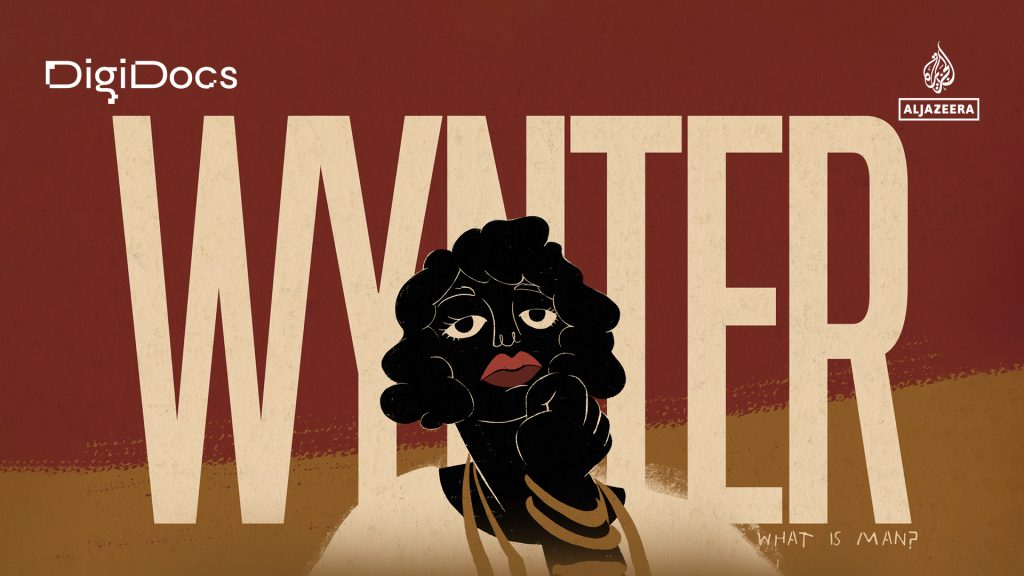Rethinking Humanity: The Radical Philosophy of Sylvia Wynter in DigiDocs
Sylvia Wynter, a groundbreaking philosopher from the Caribbean, challenges us to reimagine the very essence of what it means to be human. Through her work, Wynter offers a profound exploration of modern history, weaving together themes of slavery, the transatlantic Middle Passage, and the economics of plantation systems. Her ideas, now brought to life in an animated documentary short by filmmakers Marcela Pizarro, Stefania Sottile, and Pomona Pictures, invite us to question the foundational narratives that have shaped our understanding of humanity. This film is part of the series Race Historicised: Epistemologies of Colour, a project dedicated to uncovering and celebrating the intellectual contributions of Black thinkers who have fought against racism, both in theory and in practice. By delving into the archives of Black intellectual thought, this series sheds light on the transformative ideas of figures like Wynter, whose work remains essential to the ongoing struggle for justice and equality.
The Middle Passage and Plantation Economics: A Lens on Modernity
Wynter’s philosophy is deeply rooted in her analysis of the transatlantic slave trade and the plantation economies that defined the colonial era. She argues that these systems were not merely economic enterprises but were foundational to the construction of modernity itself. The Middle Passage, a brutal journey that forcibly transported millions of enslaved Africans across the Atlantic, is not just a tragic chapter in history but a defining moment in the creation of the modern world. Wynter contends that the dehumanization of enslaved people during this period laid the groundwork for the racial hierarchies that continue to shape our world today. Her work challenges us to confront the ways in which the legacies of slavery and colonialism are embedded in contemporary systems of power and knowledge.
Animating the Past: The Power of Visual Storytelling in DigiDocs
The animated documentary short brings Wynter’s ideas to life in a way that is both accessible and visually compelling. Animation, as a medium, allows for the exploration of complex and abstract concepts in a manner that is engaging and relatable. By transforming Wynter’s philosophical insights into vivid visuals, the filmmakers Open up her work to a broader audience, making it easier for viewers to connect with her radical vision. The film features the voices of Dr. Sophia Azeb, a scholar whose expertise provides depth and context, and Greta Mendez, a dancer whose performance adds a layer of emotional resonance to the narrative. Together, they create a multisensory experience that honors the richness of Wynter’s thought while introducing her ideas to a new generation of thinkers and activists.
Race, Knowledge, and Power: The Intellectual Legacy of Sylvia Wynter
Wynter’s philosophy is not just a critique of the past; it is a call to action for the present. She challenges us to rethink the ways in which racial hierarchies have shaped our understanding of humanity and to question the systems of knowledge that have been used to justify inequality. Her work emphasizes the importance of centering the perspectives of marginalized communities in the production of knowledge, arguing that true liberation requires a radical transformation of the way we think about race, culture, and identity. By situating Wynter’s ideas within the broader context of Black intellectual history, the film underscores her place as a towering figure in the ongoing struggle against racism and oppression.
Beyond the Archive: The Race Historicised Series and the Fight for Justice
DigiDocs is part of the broader Race Historicised: Epistemologies of Colour series, which seeks to excavate and amplify the work of Black intellectuals who have played a pivotal role in the anti-racist struggle. By bringing these voices to the forefront, the series challenges the dominant narratives that have long excluded or marginalized Black thinkers from mainstream discourse. Each film in the series offers a unique perspective on the histories of race and racism, emphasizing the importance of understanding these issues as deeply interconnected with questions of power, knowledge, and justice. Wynter’s work, in particular, serves as a powerful reminder of the need to engage with the past in order to build a more equitable future.
Toward a Radical Reimagining of Humanity: The Enduring Relevance of Sylvia Wynter
Sylvia Wynter’s philosophy is both a critique of the past and a vision for the future. Her ideas challenge us to move beyond the narrow definitions of humanity that have been shaped by histories of oppression and to embrace a more expansive understanding of what it means to be human. This animated documentary short, DigiDocs, is not just a tribute to Wynter’s work; it is an invitation to engage with her ideas and to carry her legacy forward. By rethinking the past and reimagining the present, we can work toward a future where justice, equality, and human dignity are not just ideals but lived realities. Wynter’s philosophy reminds us that the fight for a better world is not only about changing systems but also about transforming the ways we think, imagine, and understand ourselves.












